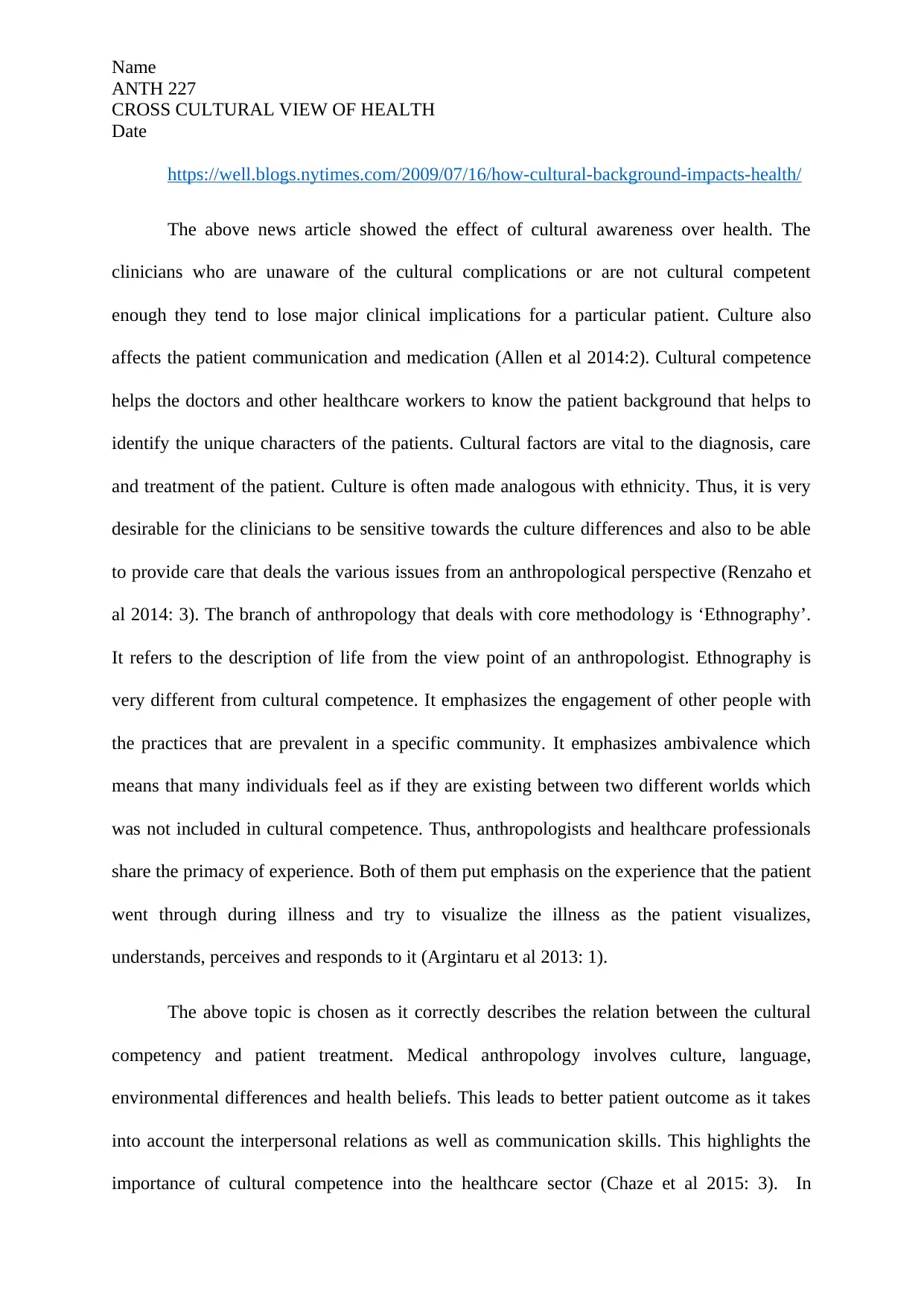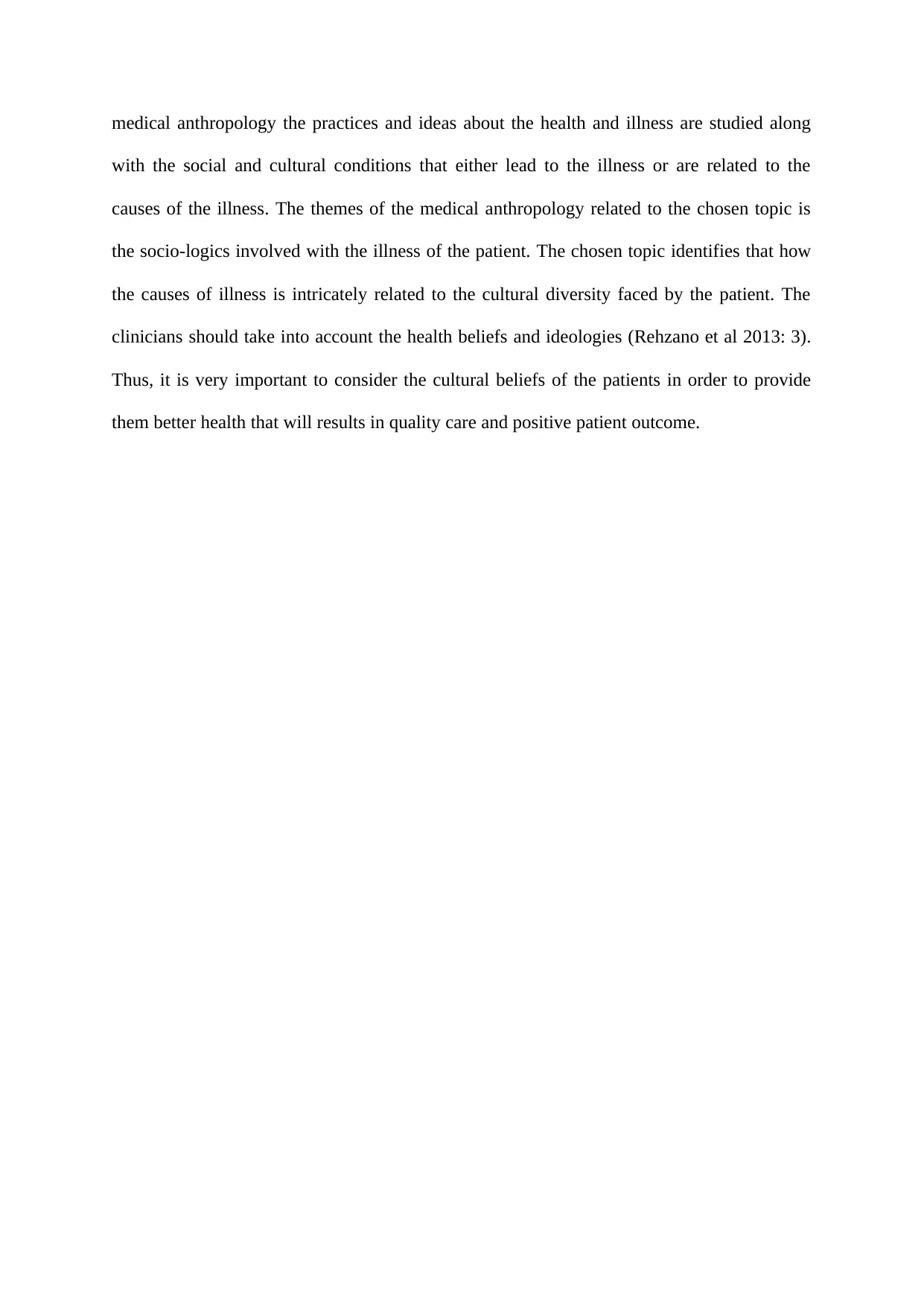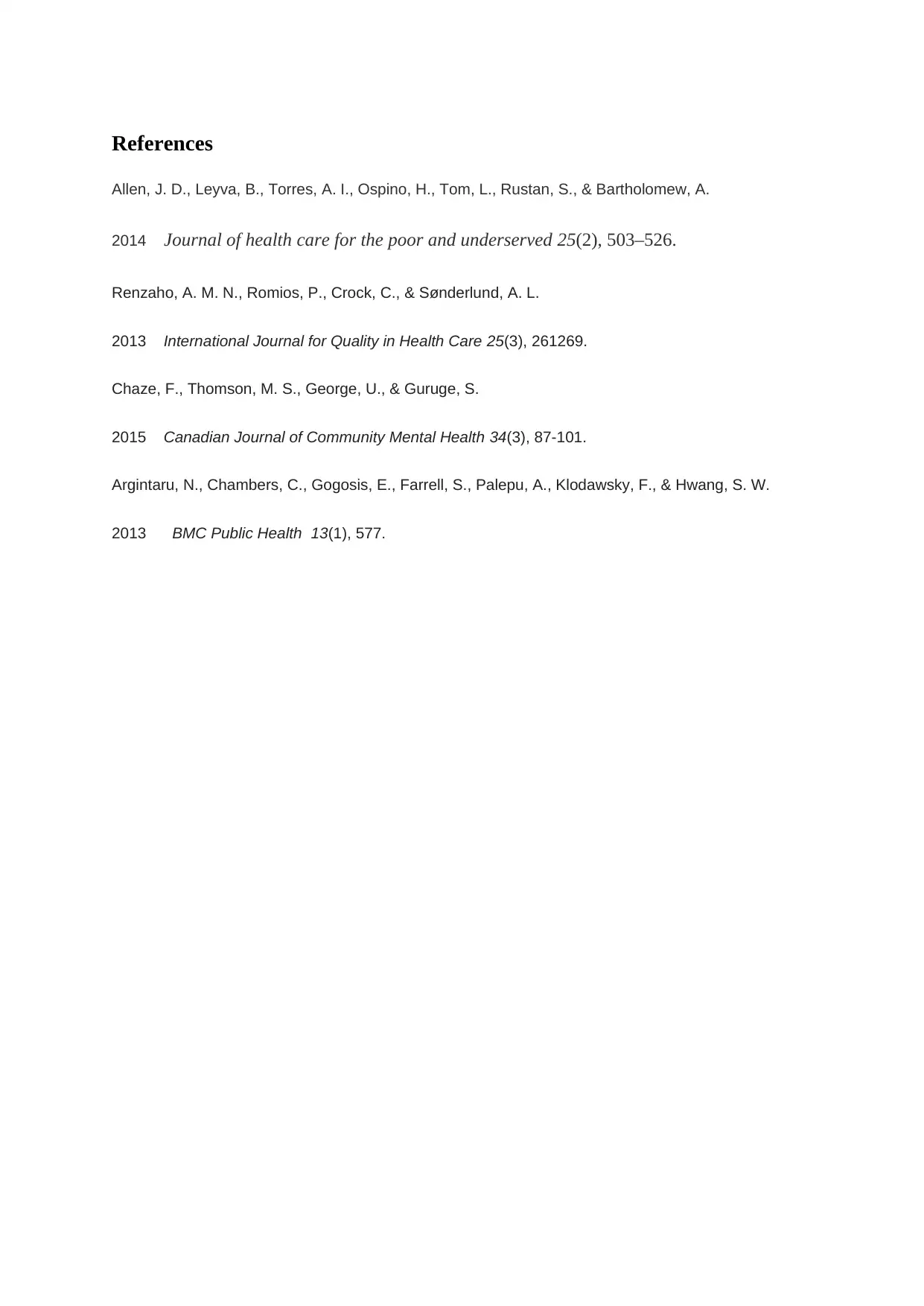The Impact of Cultural Competence on Patient Treatment
VerifiedAdded on 2022/12/19
|3
|651
|44
AI Summary
This article explores the impact of cultural competence on patient treatment. It highlights the importance of considering cultural beliefs for better healthcare outcomes. Medical anthropology and ethnography are discussed in relation to cultural competency in healthcare.
Contribute Materials
Your contribution can guide someone’s learning journey. Share your
documents today.
1 out of 3









![[object Object]](/_next/static/media/star-bottom.7253800d.svg)